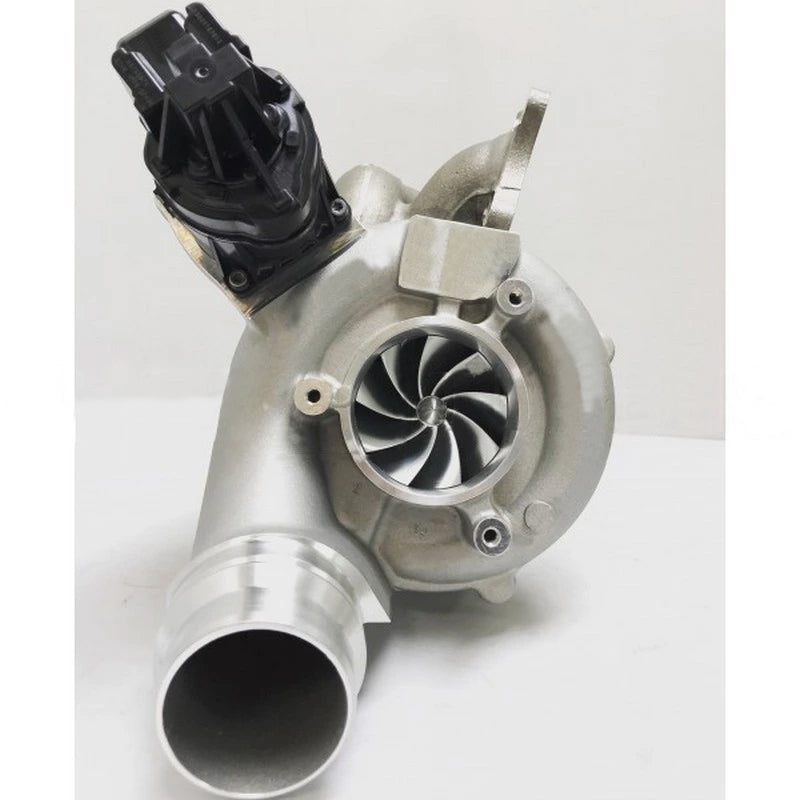Testing Your Pure Turbos: Best Methods Revealed
30th Oct 2023
Are you a performance enthusiast or a car aficionado looking to maximize the power and efficiency of your turbocharged engine? If you own or are considering installing "pure turbos" on your vehicle, it's crucial to understand the importance of thorough testing. In this blog, we will reveal the best methods for testing "pure turbos" to ensure peak performance and reliability, helping you keep your turbocharged engine running smoothly and efficiently.

Understanding Pure Turbos
First, let's clarify what "pure turbos" are. These are high-performance, aftermarket turbochargers designed to significantly enhance the power and torque of your vehicle's engine. They are sought after by those seeking to push their vehicles to the limit in terms of horsepower and acceleration.
Pure turbos typically feature upgraded compressor wheels, larger turbine housings, and improved bearings, making them a popular choice for car enthusiasts and racers. However, to fully unlock their potential, proper testing and maintenance are essential.
Why Testing Is Crucial
Testing your pure turbos is essential for various reasons:
- Performance Optimization: Proper testing ensures that your pure turbos are functioning at their peak, delivering maximum power and efficiency.
- Reliability: Thorough testing helps identify any potential issues or malfunctions early, preventing costly repairs down the road.
- Safety: Ensuring that your pure turbos are in excellent condition is vital to avoid any catastrophic failures that can damage your engine or put you at risk on the road.
Now, let's dive into the best methods for testing pure turbos.
Best Methods for Testing Pure Turbos
1. Boost Pressure Testing
Measuring and verifying the boost pressure produced by your pure turbos is a fundamental test. Use a boost gauge to ensure that your turbos are generating the specified amount of pressure, as inadequate boost can lead to decreased performance.
2. Compression and Leak Testing
Conduct a compression test to assess the health of your engine. Ensure there are no air leaks that could affect the performance of your pure turbos. Leaks in the intake or exhaust systems can lead to a loss of power and efficiency.
3. Data Logging and Dyno Testing
Invest in data logging equipment and consider dyno testing at a reputable performance shop. These tests provide detailed insights into your engine's performance and allow you to fine-tune your vehicle for optimal results.
4. Visual Inspection
Regularly inspect your pure turbos for any visible signs of wear, damage, or oil leakage. Any irregularities should be addressed promptly to prevent further damage.
5. Consult a Professional
Seek the expertise of a professional mechanic or performance tuner who specializes in turbocharged engines. Their experience and knowledge can help you diagnose and address any issues with your pure turbos effectively.
Conclusion
Testing your pure turbos is not just a maintenance task; it's a crucial step in ensuring your vehicle's peak performance, reliability, and safety. By following the methods outlined in this blog, you can confidently push your turbocharged engine to its limits and enjoy the exhilarating power and efficiency that "pure turbos" are known for.
Incorporate these testing methods into your regular maintenance routine, and you'll have the peace of mind that your turbocharged engine is operating at its best. Whether you're a seasoned car enthusiast or a novice, keeping your "pure turbos" in top shape is essential for a thrilling and reliable driving experience.
